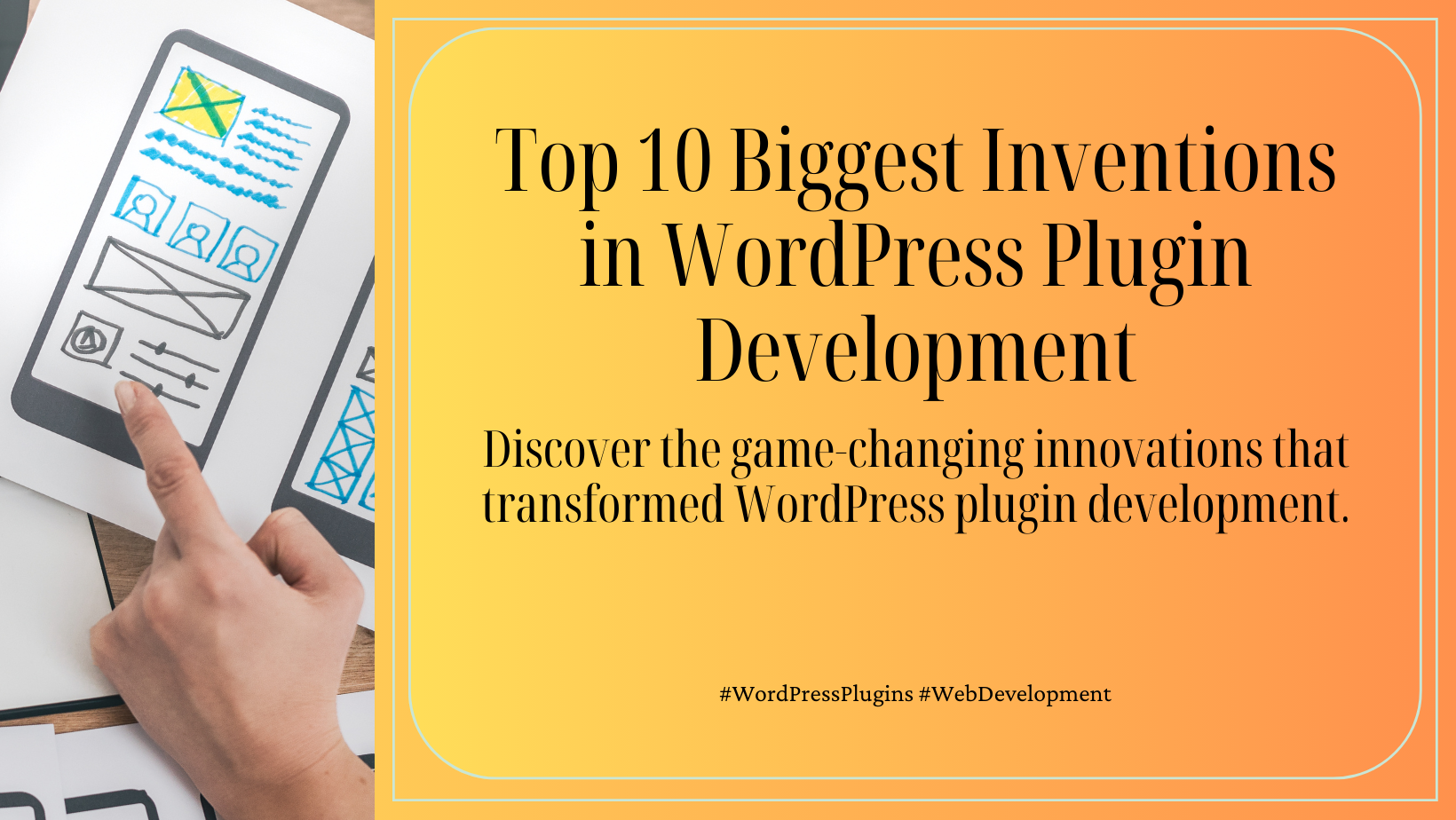What are the top 10 biggest inventions of WordPress plugin development in 2020-2024?
WordPress plugin development 2020-2024 As of my last knowledge update in January 2022, I need specific information on WordPress plugin developments from 2020 to 2023. However, I can provide you with some general trends and types of innovations that might have influenced WordPress plugin development during this period. Keep in mind that the specifics may vary, and it’s always a good idea to check the latest sources for the most up-to-date information. Here are some trends and potential innovations:
Gutenberg Block Plugins:
- With the introduction of the Gutenberg editor in WordPress, plugins that leverage custom blocks have gained popularity. Developers are creating plugins that offer unique blocks to enhance content creation and customization.
- Page Builders Integration: Plugins that seamlessly integrate with popular page builders like Elementor, Beaver Builder, and others have become essential for users looking to create complex and visually appealing layouts.
- Performance Optimization Plugins: With the emphasis on website speed and performance, plugins that focus on optimizing site speed, such as caching plugins and image optimization tools, have likely seen significant updates and improvements.
- Security Plugins: Given the increasing importance of website security, plugins that enhance WordPress security by providing features like firewall protection, malware scanning, and two-factor authentication have likely evolved.
- E-commerce Plugins: Innovations in e-commerce plugins for WordPress, such as enhanced payment gateways, improved product management, and integration with emerging technologies, could be notable.
Artificial Intelligence and Machine Learning Integration:
- Some plugins may have incorporated AI and machine learning technologies for tasks like content recommendations, user personalization, or enhanced analytics.
- Content Marketing Plugins: Plugins that facilitate content marketing efforts, such as SEO tools, social media integration, and analytics tracking, have likely evolved to meet the changing landscape of digital marketing.
- Accessibility Plugins: There is an increasing focus on web accessibility. Plugins that help website owners ensure their sites are accessible to people with disabilities could have seen advancements during this period.
- Community and Membership Plugins: Platforms that offer community building and membership management features, including forums, private content areas, and subscription models, may have introduced new functionalities.
- Headless WordPress Plugins: As the trend towards headless CMS architectures grows, plugins that facilitate the integration of WordPress as a headless CMS with front-end frameworks like React or Vue.js may have gained traction.
Remember to verify this information with the latest sources, as the WordPress ecosystem is dynamic, and new developments can occur rapidly.


